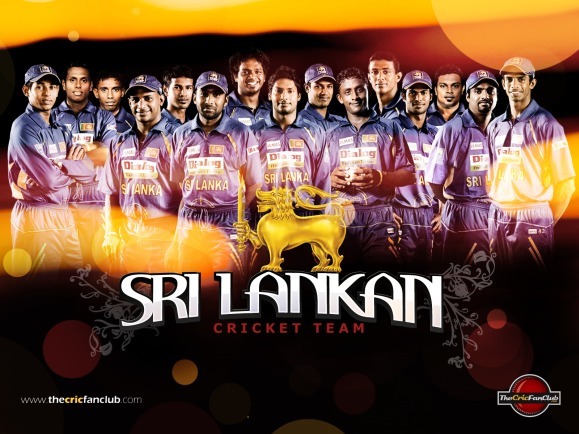Choose A Cricket Team For ACC...
 There are about
1
0
batsmens,
7
bowlers,
3
wicket keepers in the Sri Lankan cricket team. How many different ways are there to choose a team of
1
5
consisting of
7
batsmens,
6
bowlers and
2
wicket keepers from the Sri Lankan cricket team for participating for the Asian Cricket Cup?
There are about
1
0
batsmens,
7
bowlers,
3
wicket keepers in the Sri Lankan cricket team. How many different ways are there to choose a team of
1
5
consisting of
7
batsmens,
6
bowlers and
2
wicket keepers from the Sri Lankan cricket team for participating for the Asian Cricket Cup?
The answer is 2520.
This section requires Javascript.
You are seeing this because something didn't load right. We suggest you, (a) try
refreshing the page, (b) enabling javascript if it is disabled on your browser and,
finally, (c)
loading the
non-javascript version of this page
. We're sorry about the hassle.
23 solutions
BASING ON WHICH PRINCIPLE? WE HAVE TO MULTIPLY THOSE.....
Log in to reply
fundamental principle of multiplication
Log in to reply
In reply to Rajesh Ch basis on depended(multiply) & Independed(addition) Cases.
n!/(n-r)!*r! ... for details refer wikipedia or your text book!
what does 10c7 mean ?
Log in to reply
c implies combination 10C7 means that selecting 7 out of 10
selection of 7 batsmens from 10. it is given by fact(10)/(fact(7)*fact(10-7))
What does C refer to?
Log in to reply
c for combination
nCr= n!/r!(n-r)!
c for combination
whats the formula of nCr?
10C7 X 7C6 X 3C2 = 2520
10C7 X 7C6 X 3C2 = 2520
2520
2520
i press the calculator wrongly....i have done the operation.hahah
How did you multiply that?
Are the wicket keepers batsmen?
Wicket keepers are 't the batsmen
10c7 7c6 3c2
but how can u say so? a wicketkeeper can be a batsman as well; that means 3c2 7c6 7(10-3)c5(7-2)=441?
The Answer is C(10,7) x C(7,6) x C(3,2)
= 120 x 7 x 2
= 2520
From 1 0 batsmen we have to chose 7 which is 1 0 C 7 . Similarly for bowler and wicket keeper we get 7 C 6 and 3 C 2 respectively. Hence,the answer is their product 1 0 C 7 × 7 C 6 × 3 C 2 = 1 2 0 × 7 × 3 = 2 5 2 0 .
Simple Combinatorics problem: 10C7 * 7C6 * 3C2 = 10C3 * 7C1 * 3C1 = (10 9 8)/(3*2) * 7 *3 = 2520
(10!÷3!÷7!)(7!÷6!)(3!÷2!) =2520 ans
Selecting 7 batsman from 10 means 10C7, selecting 6 bowler from 7 means 7C6 and selecting 2 w. keepers from 3 means 3C2..... Now combining them i.e. (10C7)(7C6)(3C2)=2520
7 Batsmen can be chosen from 10 in 10C7 ways,6 bowlers can be chosen from 7 in 7C6 ways,similarly 2 wicket keepers can be chosen from 3 in 3C2 ways , Since all of them are required to form a team the no. of ways is given by 10C7 * 7C6 * 3C2 which gives 2520.
1]. for selection of 7 batsman out of 10 no. of ways = 10C7
2]. for selection of 6 bowlers out of 7, no. of ways = 7C6
3]. for selection of 2 wicket keepers out of 3, no. of ways = 3C2
Total no. of ways = 10C7 X 7C6 X 3C2 = 2520
Very Simple 10C7 * 7C6 * 3C2 = 2520
The number of ways we can select 7 batsmen out of 10 is 10C7. similarly for selecting 6 out of 7 bowles is 7C6 and selecting 2 out of 3 wicket keepers is 3C2. Therefore the team can selected by total 2520 ways (10C7 * 7C6 * 3C2).
we can choose 7 out of 10 bats men in 10C7 ways and 6 out of 7 bowlers in 7C6 ways and then we can choose 2 out of 3 wicket keepers in 3C2 ways totally from fundemental principle of multiplication answer is 10C7 7C6 3C2=2520
Simple permutation and combination problem.(10C7)(7C6)(3C2)=2520
A combination of n objects taken r at a time is a selection which does not take into account the arrangement of the objects. That is, the order is not important.
formaula : NcR = n!/r!(n-r)!
10c7 * 7c6 * 3c2 = 2520
use the formula n!/r!(n-r)! for batting,bowling and wiki(n is the total no and r is the no which we can choose)now multiply the results....120 7 33...if you are a beginner or searching for formulas and the concept on combinations and permutations visit the - http://www.mathsisfun.com/combinatorics/combinations-permutations.html
selecting 7 batsman = 10 C 7 selecting 6 bowlers = 7 C 6 selecting 2 wicket keepers = 3 C 2 so we get by multiplying all = 2520
nCr=nC(n-r). So 10C3 * 7C1 * 3c2 = 2520
10!/(7! * 3!) * 7!/6! * 3!/2! =2520......
from 10 batsmen number ways of choosing 7 batsmen is 10C7 then from 7 bowlers number of ways of choosing 6 bowlers is 7C6 and from 3 Wk no. of ways of choosing 2 is 3C2. hence the answer is (10C7) (7C6) (3C2)=2520